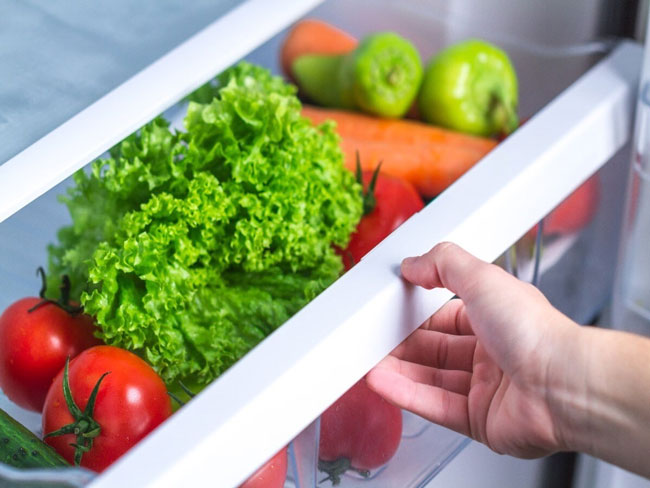Whether it’s winter or summer, the refrigerator is always in use at home. It’s essential for keeping food fresh for longer periods, especially when it comes to storing vegetables bought from the market. Without a fridge, it’s almost impossible to preserve these vegetables for more than a few days. The easiest solution seems to be storing fruits and vegetables in the fridge. However, there are some vegetables that should never be stored in the refrigerator. Yes, storing certain vegetables in the fridge can alter their properties, making them not only less beneficial but potentially harmful to the body. Let’s take a look at these vegetables.
Be Cautious When Storing Leafy Greens
Leafy green vegetables are commonly consumed during the winter months. It’s normal for households to have a surplus of these greens during this time. However, caution is needed when storing them in the fridge. Experts suggest that leafy vegetables should be stored in the fridge only after washing them thoroughly and for a maximum of 12 hours. Keeping them longer in the fridge can negatively affect their natural taste, texture, and nutritional value.
Avoid Storing Garlic and Onions in the Fridge
Garlic and onions are essential ingredients in almost every dish, adding flavor and depth to food. Many people buy garlic and onions in large quantities to store at home, as these vegetables do not spoil easily. However, these should never be stored in the fridge. When kept in the refrigerator, garlic and onions tend to sprout, which not only alters their taste but also makes them less desirable. It’s best to store them in a cool, dry place instead.
Don’t Store Ginger in the Fridge
Ginger is widely used during the winter season for both culinary and medicinal purposes. Many people store ginger in the fridge, but it should be avoided. Storing ginger in the refrigerator can cause mold to develop on it quickly, which leads to spoilage. Additionally, it can become harmful to the kidneys and liver over time.
Potatoes Should Never Be Stored in the Fridge
Whether it’s winter or summer, potatoes are a staple in most households. They’re used in a variety of dishes, and fresh, hot parathas made with potatoes are a favorite in the colder months. Some people store large quantities of potatoes in the fridge, but this is not healthy. Storing potatoes in the fridge causes them to sprout, and the starch in potatoes converts into sugar. This makes them unhealthy, not just for diabetics but for everyone.
Tomatoes Should Not Be Refrigerated
Tomatoes are another common vegetable found in most homes. They are an essential ingredient in many dishes, and people often buy a lot to store. To prevent spoilage, many store tomatoes in the fridge, but this is not advisable. Refrigerating tomatoes can alter their taste and texture, and the antioxidants in tomatoes get destroyed. It’s better to store tomatoes at room temperature for better flavor and freshness.




